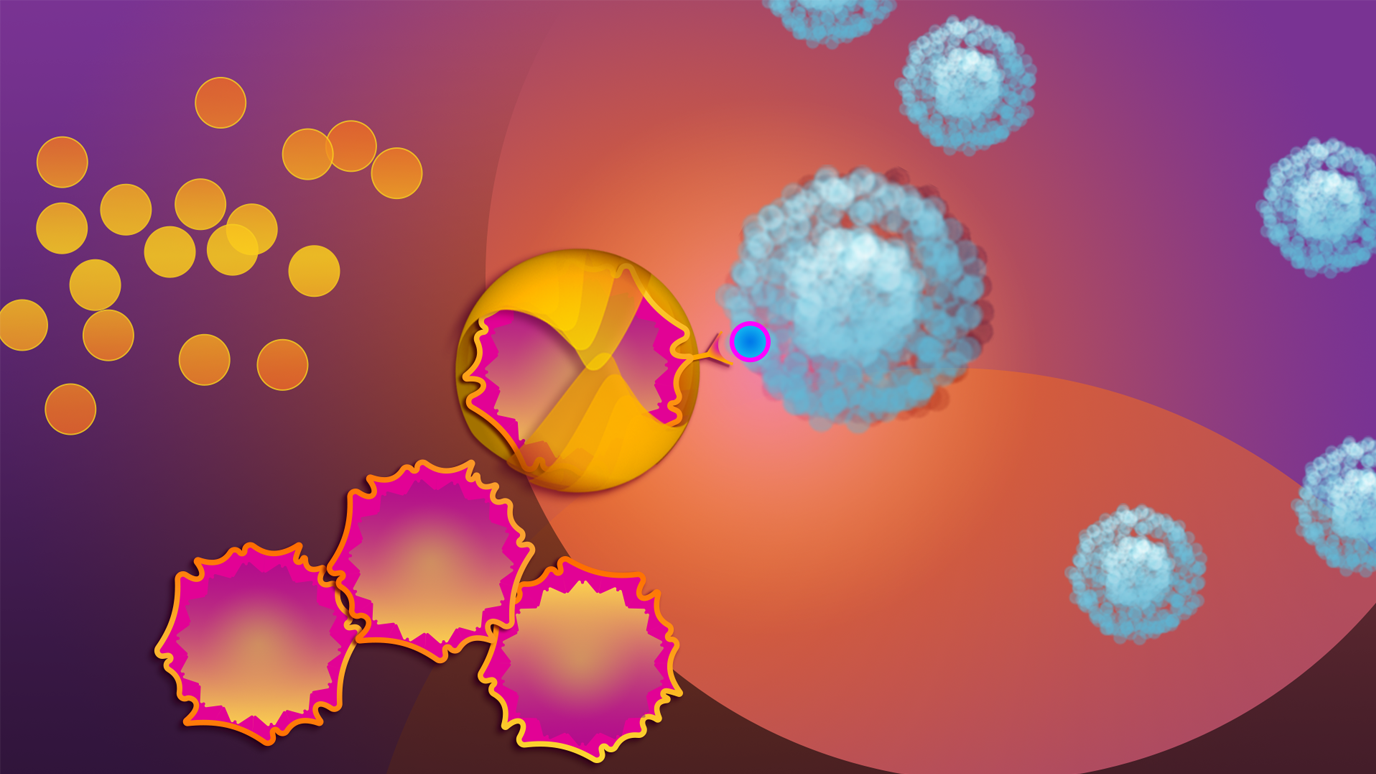Virtual visits made my cancer care easier
- Diseases
- Acoustic Neuroma (14)
- Adrenal Gland Tumor (24)
- Anal Cancer (68)
- Anemia (2)
- Appendix Cancer (16)
- Bile Duct Cancer (26)
- Bladder Cancer (72)
- Brain Metastases (28)
- Brain Tumor (232)
- Breast Cancer (714)
- Breast Implant-Associated Anaplastic Large Cell Lymphoma (2)
- Cancer of Unknown Primary (4)
- Carcinoid Tumor (8)
- Cervical Cancer (158)
- Colon Cancer (166)
- Colorectal Cancer (116)
- Endocrine Tumor (4)
- Esophageal Cancer (44)
- Eye Cancer (36)
- Fallopian Tube Cancer (8)
- Germ Cell Tumor (4)
- Gestational Trophoblastic Disease (2)
- Head and Neck Cancer (12)
- Kidney Cancer (128)
- Leukemia (342)
- Liver Cancer (50)
- Lung Cancer (286)
- Lymphoma (278)
- Mesothelioma (14)
- Metastasis (30)
- Multiple Myeloma (100)
- Myelodysplastic Syndrome (60)
- Myeloproliferative Neoplasm (4)
- Neuroendocrine Tumors (16)
- Oral Cancer (100)
- Ovarian Cancer (172)
- Pancreatic Cancer (160)
- Parathyroid Disease (2)
- Penile Cancer (14)
- Pituitary Tumor (6)
- Prostate Cancer (146)
- Rectal Cancer (58)
- Renal Medullary Carcinoma (6)
- Salivary Gland Cancer (14)
- Sarcoma (238)
- Skin Cancer (296)
- Skull Base Tumors (56)
- Spinal Tumor (12)
- Stomach Cancer (64)
- Testicular Cancer (28)
- Throat Cancer (92)
- Thymoma (6)
- Thyroid Cancer (96)
- Tonsil Cancer (30)
- Uterine Cancer (80)
- Vaginal Cancer (16)
- Vulvar Cancer (20)
- Cancer Topic
- Adolescent and Young Adult Cancer Issues (20)
- Advance Care Planning (10)
- Biostatistics (2)
- Blood Donation (18)
- Bone Health (8)
- COVID-19 (362)
- Cancer Recurrence (120)
- Childhood Cancer Issues (120)
- Clinical Trials (630)
- Complementary Integrative Medicine (22)
- Cytogenetics (2)
- DNA Methylation (4)
- Diagnosis (232)
- Epigenetics (6)
- Fertility (62)
- Follow-up Guidelines (2)
- Health Disparities (14)
- Hereditary Cancer Syndromes (126)
- Immunology (18)
- Li-Fraumeni Syndrome (8)
- Mental Health (116)
- Molecular Diagnostics (8)
- Pain Management (62)
- Palliative Care (8)
- Pathology (10)
- Physical Therapy (18)
- Pregnancy (18)
- Prevention (914)
- Research (392)
- Second Opinion (74)
- Sexuality (16)
- Side Effects (604)
- Sleep Disorders (10)
- Stem Cell Transplantation Cellular Therapy (216)
- Support (402)
- Survivorship (320)
- Symptoms (182)
- Treatment (1786)
Stage IV melanoma survivor: An immunotherapy drug gave me my life back
BY Mark Zindler
2 minute read | Published October 20, 2020
Medically Reviewed | Last reviewed by an MD Anderson Cancer Center medical professional on October 20, 2020
In early 2019, I was almost seven years out from my original melanoma diagnosis. I’d been living cancer-free since having surgery and radiation therapy during the spring of 2012, and I was looking forward to enjoying retirement with my wife.
Then, during a regular follow-up visit at MD Anderson, I got a crushing blow: the cancer had returned. Scans revealed I had three new tumors. Two were in my right lung. But the third was growing in the left ventricle of my heart.
A biopsy showed that the tumors in my lungs were melanoma. So, it was logical to assume the third one was, as well. But it was too dangerous to biopsy the tumor in my heart, so I reviewed my options with my oncologist, Dr. Rodabe Amaria. She recommended an immunotherapy drug called nivolumab.
I took her advice and started getting weekly infusions of it. Within 10 months, I was cancer-free again.
Hope despite a stage IV diagnosis
When I first found out my cancer had returned, I thought I’d make it through the summer, maybe. After all, the cancer was already stage IV now, and it had invaded my heart.
Cancer doesn’t play fair. But Dr. Amaria gave me hope. The drug she was recommending was built for treating melanoma. And immunotherapy gives you an army of T cells to do it.
I started taking nivolumab in January 2019. By July, my scans showed the tumors were visibly shrinking. And by last November, my doctors could find no evidence of disease. I was blown away.
Immunotherapy made me one of the lucky ones
I still get monthly infusions of nivolumab. I’m on my 23rd dose right now. But I’ve been doing so well on it that Dr. Amaria says she’ll be taking me off the medication in October, three months earlier than originally planned. I’ve hardly had any side effects either -- just some fatigue and an itchy rash on my back for a couple of weeks.
I consider this a miracle. Because even after being diagnosed with stage IV cancer, here I am again, almost two years later, cancer-free. And I feel great.
My stage IV melanoma treatment
I grew up in Houston, so I knew MD Anderson had brilliant doctors. Still, the success of this treatment was completely unexpected.
I asked Dr. Amaria once what the chances were of the melanoma coming back after this. She said there was a 90% chance that it won’t. Even if it does, we could just pick up right where we left off. That sounded pretty good to me. So, I’ll take those odds.
Request an appointment at MD Anderson online or by calling 1-877-632-6789.
Related Cancerwise Stories

The success of this treatment was completely unexpected.
Mark Zindler
Survivor






